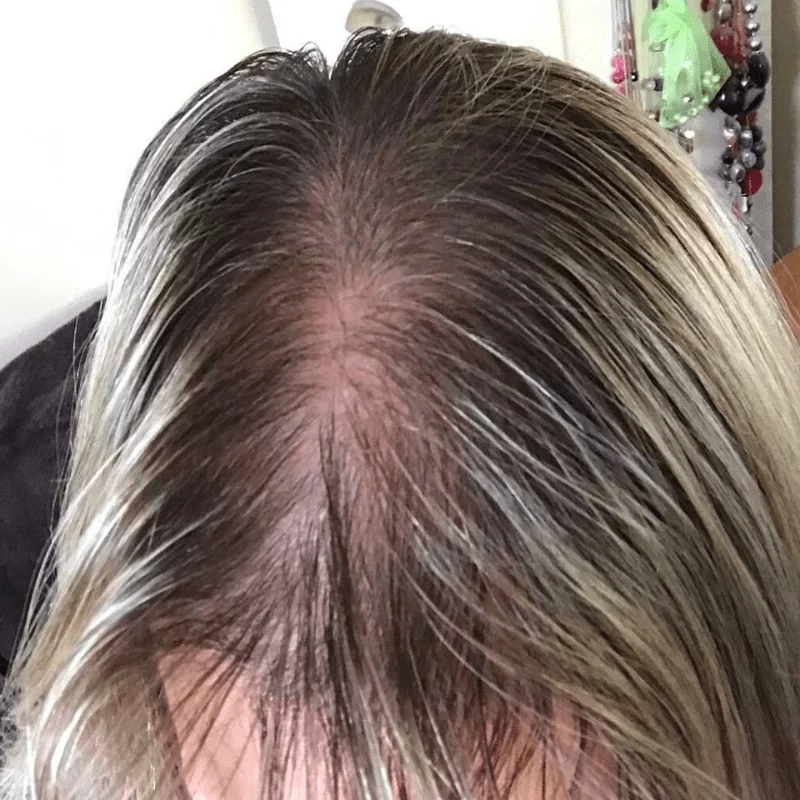Are you wondering why there is more hair in the plug hole than on your head? When you brush your hair is there excessive amounts left in the brush? And have you noticed a receding hair line over the past few years?
If the above sounds familiar, then we’re here to help you identify why it might be happening and how we can help. And don’t just think hair loss is just for men, female hair loss or thinning is common too. The reasons can be temporary such as a health issue, or vitamin deficiency, or may be down to genetics and aging.
Either way, here are just some of the key reasons for hair loss:
- Heredity – your genes play a key part in balding or hair loss, take a look at your parents or grandparents to see who you are taking after! It’s the most common cause of hair loss and is completely natural.
- Male Pattern Baldness – this type of hair loss is common and related to your genes and male sex hormones dihydrotestosterones It usually commences with a receding hair line and thinning on the crown. Over time, the hair follicles shrink which results in shorter and finer hair. About 50% of males experience male pattern baldness, with no real cure many contemplate hair restoration.
- Your body undergoes many changes during pregnancy, and one of the few perks is the thickening of your hair. Unfortunately, post-pregnancy the hair quite often goes in the other direction and you might find yourself losing a lot more hair than usual. It may seem shocking at times, however postpartum hair loss is a natural process that usually occurs around the 3rd month after giving birth and can last for around 10-12 weeks. However if you find your hair does not return to its original fullness, here at KSL we are also experts in female hair restoration.
Illness – have you recently had a trauma on your immune system such an illness or had a major operation? That kind of physical stress can lead to temporary hair loss.
- Stress – Emotion stress can lead to hair loss in circumstances such as a death of a loved one, divorce or losing your job. It’s important to see a doctor to seek advice and ways in which you can cope with the stress which in turn will assist your hair loss. There are three main types of stress-related hair loss
- Telogen effluvium – this is the most common type of stress-related hair loss where the follicles may go into a ‘resting phase’ or fall out in unusually large volumes.
- Alopecia – hair falls out in chunks mainly due to shock or stress, the immune system affects the follicles causing the hair to fall out in clump
- Trichotillomania – this is due to a compulsive act of pulling your own hair out of your head usually this condition is down to a coping mechanism
- Under-active Thyroid – Hypothyroidism is a disorder of the endocrine system, the thyroid gland does not produce enough hormones and in turn you can suffer from tiredness, depression, weight gain and hair loss. If you have an underactive thyroid it’s worth reading this guide to Hypothyroidism by the British Thyroid Foundation.
- Lupus – this is an autoimmune disease which can cause many complaints including fatigue, swollen joints and skin rashes plus hair loss. It may take time for your hair to return so you could consider wearing a wig, hair extensions, hair transplants or simply refreshing your hair style in an attempt to cover up balding patches.
Hair loss or balding, whether you are male or female is something that impacts your life and confidence. You can either embrace it, seek assistance for coping mechanisms OR come and see one of our consultants to discuss how we can help. You won’t be disappointed and we’re a friendly team who want the best outcome for you and your confidence. Share this article with someone you love and maybe suffering not knowing if what they’re going through is normal…. It IS!
Interested in FUE eyebrow transplants or FUE beard transplants? You can find us at the following clinics:




